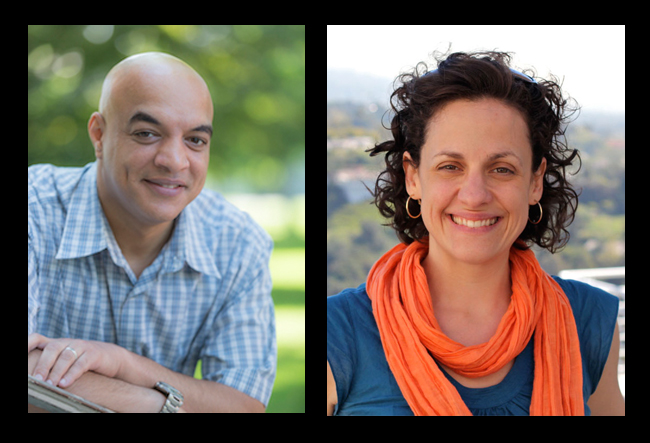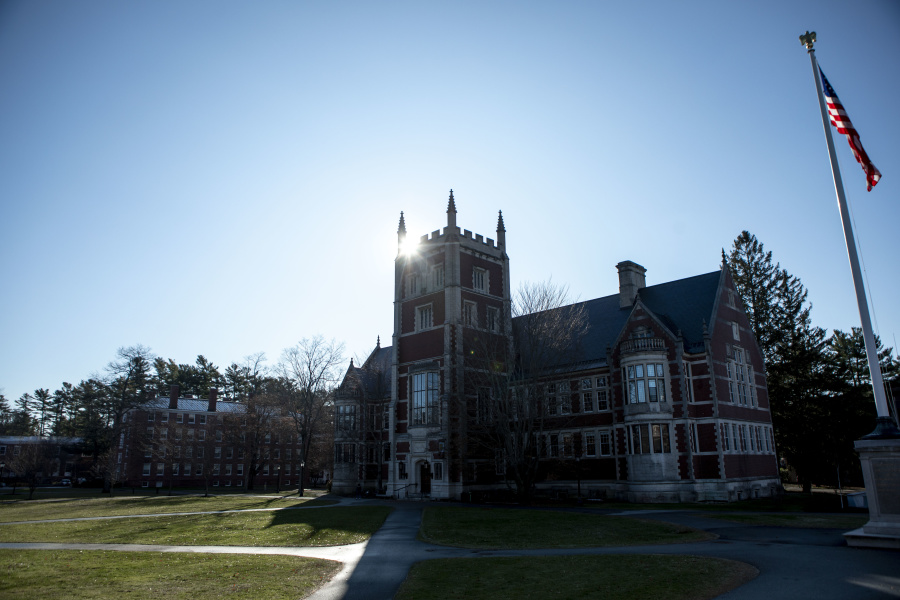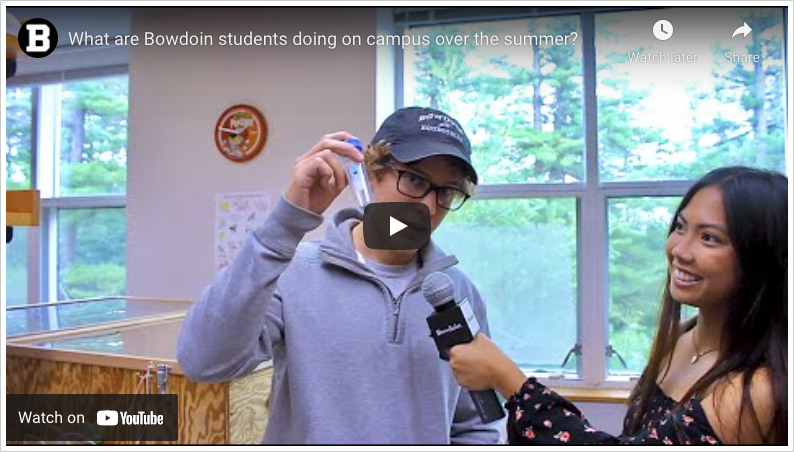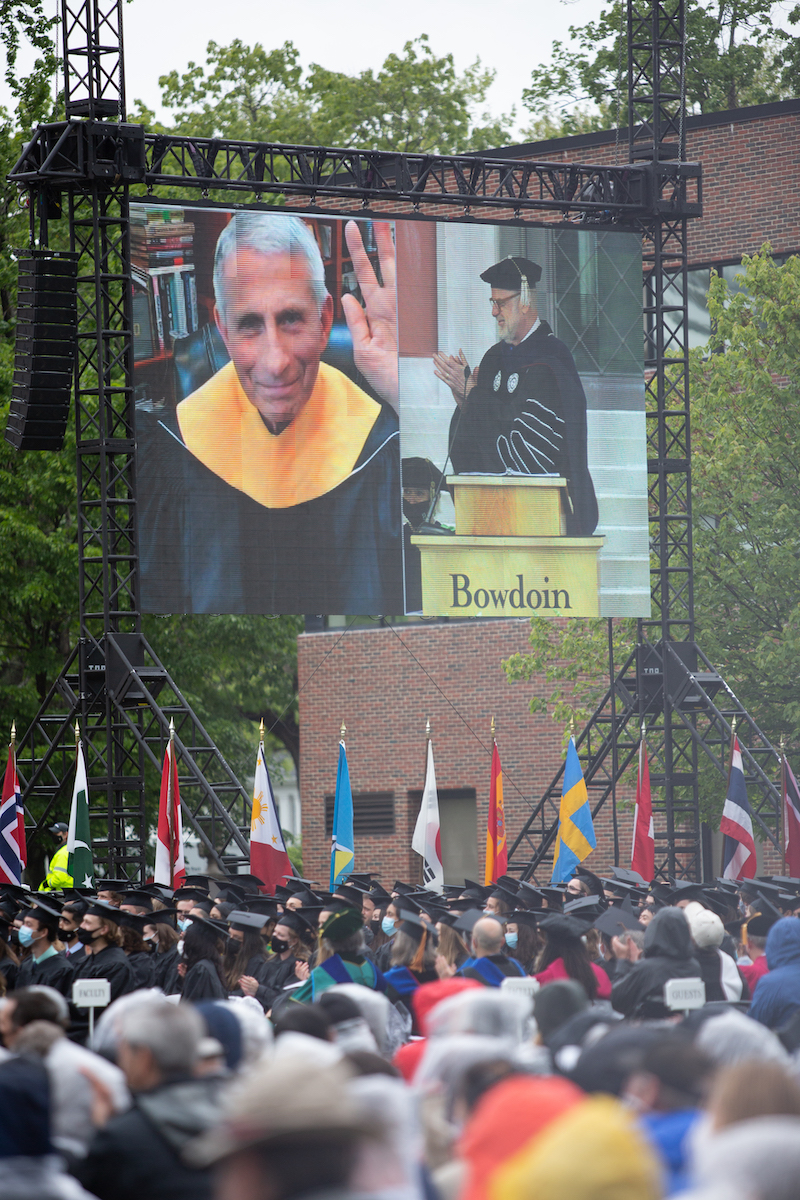Theater, Chemistry Faculty Offer Moments of Contemplation

Every Friday afternoon, Ibrahim Moustafa takes a short break from his duties as visiting assistant professor of chemistry and biochemistry to walk to the McKeen Center to lead the Jummah prayer for the Muslim Student Association.
Every Thursday at lunchtime, Associate Professor of Theater Abigail Killeen leads a bible study in a private room in Thorne Hall. In the last few weeks, she has been focusing on the Sermon of the Mount, asking questions such as, “What does it mean to be blessed? What is it to be meek? What is it to be pure at heart? What does it mean to be poor in spirit?”
While the stereotype of liberal arts colleges is they are bastions of atheists and secular thought, these two professors reveal some of the diversity at Bowdoin, and the ways students are both invited to practice their faith and explore other faiths.
Muslims gather for the Jummah every Friday afternoon to both pray and to contemplate a religious topic. Each week, Moustafa prepares to lead a 15- to 20-minute discussion on a subject related to Islam. “The basic point,” he said, “is to have people gather, pray, and congregate.” Typically, about 10 students come, as well as occasional visitors to Brunswick or Bowdoin, Moustafa says. (He is taking over Jummah duties this semester for Mohammad Irfan, an assistant professor of computer science who is on parental leave.)
After the election of Donald Trump Nov. 8 — an event that sent waves of emotion through Muslim communities across the United States — Moustafa chose to speak the following Friday about fear, and how he believes that maintaining one’s faith can allay fear.
“Given what happened, it’s important to be positive,” he said, and to stay open-minded. “We are meant to know each other and learn from each other,” he continued. “This is the behavior every Muslim should have strongly in their heart.”
Killeen said she decided to offer a bible study on campus because she wants “to honor all impulses that look to something larger than ourselves.” She said she encourages anyone to attend these meetings — both Christians and skeptics, people “with all points of view.”
Calling the Gospels in particular “transformative texts,” Killeen said, “I want to ask questions like, “Are they relevant to me today, and if yes, how and why?”
Before starting his teaching and research job at Bowdoin, Moustafa, who is from Egypt, did research at Penn State. He investigates the structure of enzymes and how they work, focusing in particular on understanding how viruses replicate.
In addition to teaching at Bowdoin, Killeen is active in theaters in Portland, New York, and Brunswick. She gravitates to theatrical projects and roles for women that break away from traditional narratives and explore “grace and transformation,” she says.



